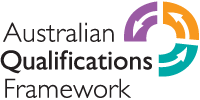CLET RPL is Helping Military and Police Transition with Conf...
This unit describes the skills required to contribute to an ethical workplace and participate in ethical decision making.
This unit applies to those working in public sector roles but may be applied to anyone working in a similar organisational context.
The skills and knowledge described in this unit must be applied within the legislative, regulatory and policy environment in which they are carried out. Organisational policies and procedures must be consulted and adhered to.
Those undertaking this unit would generally work independently and as part of a team, where they may have some supervisory responsibilities. They would perform complex tasks in a range of familiar contexts.
No licensing, legislative or certification requirements apply to unit at the time of publication.








